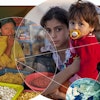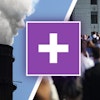To apply see 'TO APPLY' listed below.
Exercise Date & Location:
October, 6, 7 and 8, 2015 Virtual Exercise – Multiple Locations
Exercise Length:
4 Hours. Start time is 12:00 P.M. EST and end time is 4:00 P.M. EST
(to accommodate multiple time zones).
Exercise Description:
This TTX is designed for jurisdictions interested in increasing cybersecurity awareness among their employees and senior leadership. The complexity of this scenario is based on a jurisdictions’ response to significant cyber events impacting multiple agencies. In addition to general awareness, the jurisdictions’ secondary priority is to examine the incident management structure used to manage multiple incidents.
Scenarios threat vectors:
• Distributed Denial of Service (DDoS) • PII Breach/ data exfiltration
• Social Media Hack • Spearphishing
• User Error • Website Defacement
• Wiper Malware
The VTTX involves key personnel discussing simulated scenarios in an informal setting, and can be used to assess plans, policies, training and procedures. Lead facilitation for the exercise will be coordinated by EMI, with local facilitation provided by the participating agency. This format will allow the common delivery of exercise materials, scenarios, modules and discussion questions among those participating in the exercise.
Benefit to the Whole Community:
The VTTX is a pre-packaged set of exercise materials requiring reduced effort by participating organizations. The new/novel delivery method will allow participating communities, Non-Government Organizations and industry to share real-time cyber-based related preparation, response and recovery concerns and solutions with all participants providing a unique environment for learning lessons and sharing information.
Exercise Goal:
This virtual exercise will enable the participants to exercise their knowledge, skills and abilities needed to effectively conduct all-hazards emergency
preparedness, response and recovery. Overall goals include:
1.) Prepare participants for a cyber-based event affecting their community.
No. 1190 Wednesday, September 2, 2015 Course: V-0015A - Virtual Tabletop Exercise (VTTX) Series – Cyber –Based Focus No. 1190 Wednesday, September 2, 2015
2.) Enable participants to better coordinate their response operations with counterparts from local governments, State governments, Federal agencies, Tribal, private sector organizations, and non-governmental agencies.
3.) Leverage VTC technology to reach remote sites.
4.) Provide a virtual, experiential education environment to exercise and enhance critical response and recovery tasks.
Target Audience:
This VTTX is designed for a “community based” organization with representation from multiple Emergency Support Functions (ESFs), comprised of whole community stakeholders and partners involved in a cyber-based response and recovery. It is STRONGLY RECOMMENDED that Cyber VTTX participating organizations include all of the following disciplines: emergency management, information technology, public safety, public information, communications and other government or private sector personnel involved in cyber incident response, as appropriate.
Exercise Design
This VTTX is designed to engage the participants in a no fault, hazard-specific exercise discussion. The lead facilitation will occur via VTC from the EMI campus, and will be complimented by a dedicated local agency facilitator at each VTC site.
The VTTX will be supported by an Exercise and Coordination Facilitation Guide, which will include all required logistical information (room layout, connection instructions, etc.), as well as, facilitation and hot wash instructions.
The VTTX will consist of:
• A hazard awareness briefing on the scenario hazard.
• Three discussion modules presented by the EMI facilitator.
• Local discussion with guided questions facilitated by an on-site facilitator.
• Brief-outs from each participating location after each module.
Participation Requirements:
Participants must have an appropriate site equipped with VTC capability that can access the Federal Emergency Management Agency (FEMA) VTC site (connection information will be provided by EMI). Participating locations will be responsible for local exercise logistics, and should designate an exercise coordinator to implement the logistical requirements for the exercise. In addition, the location must provide a person capable of facilitating the on-site portion of exercise. Electronic copies of the related exercise materials will be provided in advance by EMI.
To Apply:
Locations interested in participating in the VTTX series should submit an email request to participate in the exercise to Douglas Kahn at douglas.kahn@fema.dhs.gov , phone (301) 447-7645.
Your email is your program application.
When applying, please provide a central point of contact from your organization to work all issues and your preferred date to take part. Each location will receive a logistical information and exercise materials to set up and facilitate the exercise locally.
Exercise Date & Location:
October, 6, 7 and 8, 2015 Virtual Exercise – Multiple Locations
Exercise Length:
4 Hours. Start time is 12:00 P.M. EST and end time is 4:00 P.M. EST
(to accommodate multiple time zones).
Exercise Description:
This TTX is designed for jurisdictions interested in increasing cybersecurity awareness among their employees and senior leadership. The complexity of this scenario is based on a jurisdictions’ response to significant cyber events impacting multiple agencies. In addition to general awareness, the jurisdictions’ secondary priority is to examine the incident management structure used to manage multiple incidents.
Scenarios threat vectors:
• Distributed Denial of Service (DDoS) • PII Breach/ data exfiltration
• Social Media Hack • Spearphishing
• User Error • Website Defacement
• Wiper Malware
The VTTX involves key personnel discussing simulated scenarios in an informal setting, and can be used to assess plans, policies, training and procedures. Lead facilitation for the exercise will be coordinated by EMI, with local facilitation provided by the participating agency. This format will allow the common delivery of exercise materials, scenarios, modules and discussion questions among those participating in the exercise.
Benefit to the Whole Community:
The VTTX is a pre-packaged set of exercise materials requiring reduced effort by participating organizations. The new/novel delivery method will allow participating communities, Non-Government Organizations and industry to share real-time cyber-based related preparation, response and recovery concerns and solutions with all participants providing a unique environment for learning lessons and sharing information.
Exercise Goal:
This virtual exercise will enable the participants to exercise their knowledge, skills and abilities needed to effectively conduct all-hazards emergency
preparedness, response and recovery. Overall goals include:
1.) Prepare participants for a cyber-based event affecting their community.
No. 1190 Wednesday, September 2, 2015 Course: V-0015A - Virtual Tabletop Exercise (VTTX) Series – Cyber –Based Focus No. 1190 Wednesday, September 2, 2015
2.) Enable participants to better coordinate their response operations with counterparts from local governments, State governments, Federal agencies, Tribal, private sector organizations, and non-governmental agencies.
3.) Leverage VTC technology to reach remote sites.
4.) Provide a virtual, experiential education environment to exercise and enhance critical response and recovery tasks.
Target Audience:
This VTTX is designed for a “community based” organization with representation from multiple Emergency Support Functions (ESFs), comprised of whole community stakeholders and partners involved in a cyber-based response and recovery. It is STRONGLY RECOMMENDED that Cyber VTTX participating organizations include all of the following disciplines: emergency management, information technology, public safety, public information, communications and other government or private sector personnel involved in cyber incident response, as appropriate.
Exercise Design
This VTTX is designed to engage the participants in a no fault, hazard-specific exercise discussion. The lead facilitation will occur via VTC from the EMI campus, and will be complimented by a dedicated local agency facilitator at each VTC site.
The VTTX will be supported by an Exercise and Coordination Facilitation Guide, which will include all required logistical information (room layout, connection instructions, etc.), as well as, facilitation and hot wash instructions.
The VTTX will consist of:
• A hazard awareness briefing on the scenario hazard.
• Three discussion modules presented by the EMI facilitator.
• Local discussion with guided questions facilitated by an on-site facilitator.
• Brief-outs from each participating location after each module.
Participation Requirements:
Participants must have an appropriate site equipped with VTC capability that can access the Federal Emergency Management Agency (FEMA) VTC site (connection information will be provided by EMI). Participating locations will be responsible for local exercise logistics, and should designate an exercise coordinator to implement the logistical requirements for the exercise. In addition, the location must provide a person capable of facilitating the on-site portion of exercise. Electronic copies of the related exercise materials will be provided in advance by EMI.
To Apply:
Locations interested in participating in the VTTX series should submit an email request to participate in the exercise to Douglas Kahn at douglas.kahn@fema.dhs.gov , phone (301) 447-7645.
Your email is your program application.
When applying, please provide a central point of contact from your organization to work all issues and your preferred date to take part. Each location will receive a logistical information and exercise materials to set up and facilitate the exercise locally.

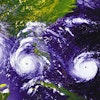
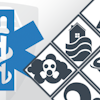
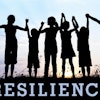

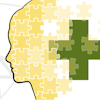
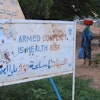
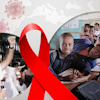 Planet Earth...and You!
Planet Earth...and You!
